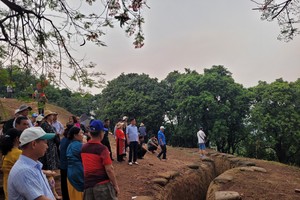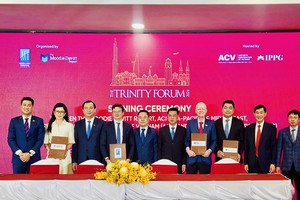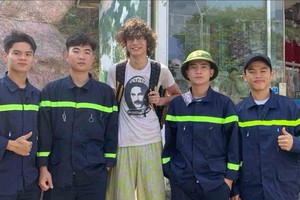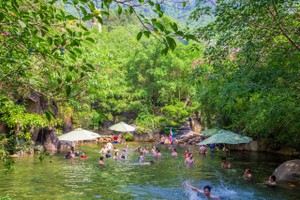The People’s Committee of Khanh Hoa province is seeking investment in order to build a mountain resort in honor of famed physician and bacteriologist Alexandre Yersin.
.jpg)
The proposed tourist area will be located on the 1,500 km high Hon Ba Mountain in Dien Khanh District’s Suoi Cat commune, 55 km from the coastal city of Nha Trang.
The resort will include a spa, mud bath and meditation center as well as recreational services including a casino and museum to commemorate the late doctor.
Provincial authorities have invested nearly VND100 billion to build a road to the mountain’s summit, where Yersin attempted to cultivate the quinquina tree (Cinchona ledgeriana). The tree, which cannot survive at altitudes lower than 1500 m, was imported from the Andes in South America because of its usefulness as a remedy for treating and preventing malaria.
Alexandre Emile John Yersin (September 22, 1863 – March 1, 1943) was a French-Swiss physician and bacteriologist. He was born in 1863 in Lavaux, Canton of Vaud, Switzerland, in a family originally from France.
He arrived in Viet Nam in 1890 when the country was a French colony. In 1895, he installed a small laboratory in Nha Trang to manufacture the world’s first anti-plague serum, which he had developed earlier in Paris.
Alexandre Yersin is well remembered in Vietnam, where he was affectionately called Ong Nam (Mr. Five) by local residents. Following the country's independence, streets named in his honor kept their designation and his tomb in Suoi Dau was graced by a pagoda where rites are performed in his honor.
Yersin's house in Nha Trang is now a museum, and the epitaph on his tombstone describes him as a "Benefactor and humanist, venerated by the Vietnamese people". In Hanoi, a French Lycée bears his name.
In 1934, he was nominated as Honorary Director of the Pasteur Institute and as a member of its Board of Administration. He died during World War II at his home in Nha Trang in 1943.
























